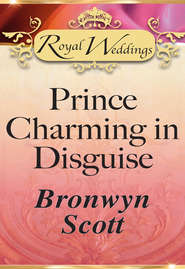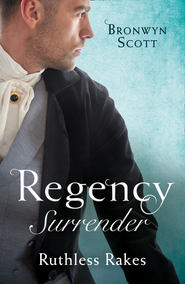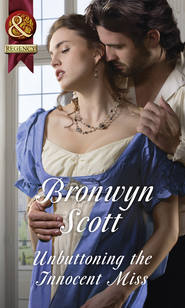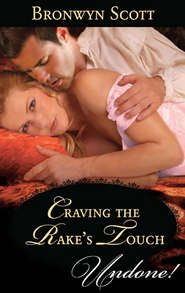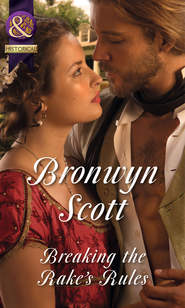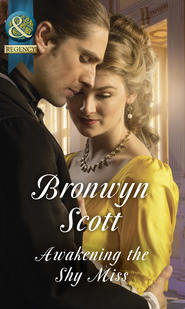По всем вопросам обращайтесь на: info@litportal.ru
(©) 2003-2024.
✖
A Marriage Deal With The Viscount
Автор
Год написания книги
2019
Настройки чтения
Размер шрифта
Высота строк
Поля
Chapter Two (#ua4a61a00-7d71-5376-9592-be388b4fea84)
Chapter Three (#u4b1317ab-fe94-590d-98e0-6bb5e3bcb674)
Chapter Four (#u21739a25-46f3-50cd-b392-0d920c745428)
Chapter Five (#u6ad9dd8a-2800-579f-8282-29a479960627)
Chapter Six (#litres_trial_promo)
Chapter Seven (#litres_trial_promo)
Chapter Eight (#litres_trial_promo)
Chapter Nine (#litres_trial_promo)
Chapter Ten (#litres_trial_promo)
Chapter Eleven (#litres_trial_promo)
Chapter Twelve (#litres_trial_promo)
Chapter Thirteen (#litres_trial_promo)
Chapter Fourteen (#litres_trial_promo)
Chapter Fifteen (#litres_trial_promo)
Chapter Sixteen (#litres_trial_promo)
Chapter Seventeen (#litres_trial_promo)
Chapter Eighteen (#litres_trial_promo)
Chapter Nineteen (#litres_trial_promo)
Chapter Twenty (#litres_trial_promo)
Chapter Twenty-One (#litres_trial_promo)
Chapter Twenty-Two (#litres_trial_promo)
Chapter Twenty-Three (#litres_trial_promo)
Epilogue (#litres_trial_promo)
Extract (#litres_trial_promo)
About the Publisher (#litres_trial_promo)
Chapter One (#u989b1a48-84ae-57a0-bd13-0548bd470d02)
London—May 1854
Men reveal themselves the most in the least of their actions. In this case, it was the failure to offer a drink. On that omission alone, Conall Everard knew he was going to be refused. He’d learned to look for meaning in the smallest of gestures—or the lack of them. Today, he’d been in the Duke of Cowden’s study for precisely one and a half minutes and he already knew the interview would go poorly. This afternoon, the Duke had not offered him a drink, only a seat in a maroon, Moroccan-leather chair designed for style over comfort, a sign he was fortunate to get an appointment with the Duke at all no matter how short the audience. Longer audiences got more comfortable chairs. It affirmed his earlier assumption of bad news. The Duke was a busy man. Most of tonnish London wanted a moment of the man’s time, a place in his deep pockets or a whisper of his wisdom. This audience had been granted out of remembrance for the Duke’s friendship with Conall’s father rather than any desire to do business with his late friend’s son. Unless...
Unless Conall could change the conversation. The Duke might intend to refuse him, but Conall had persuaded hard hearts before, usually of the feminine variety and usually for business of a different sort, but, none the less, persuasion was persuasion and Conall Everard, the newly inherited Viscount Taunton, was as persuasive as they came. Conall leaned forward, as if he were oblivious to the Duke’s oversight on the drink. ‘I appreciate your time today, your Grace, the alpaca has much to recommend it: the waterproof layering of its wool, even the feel of the wool, which is far softer than our sheep.’
The Duke cut him off with a wave of his hand and the tired sigh of a man much beset. ‘I read the report, Taunton.’
‘Alpacas can be raised in England,’ Conall pushed on, ignoring the pain that still stabbed at him whenever someone called him that. Taunton. The title was his now and with it went the reminder that his beloved father was dead. After a year, he was starting to think he might never recover from the blow. He might not have if it had been up to him. But it wasn’t up to him. Nothing would ever just be about him again. A viscount had to put his family first, his people first, all of whom who were counting on him to make the Viscountcy viable again. He’d had to shelve his grief and shoulder his responsibilities. He could not fail today. ‘Imagine what it would mean, your Grace, if we had direct access to the wool source without the complications of importing.’
‘We know what it would mean.’ Cowden’s patience was thin. ‘The board read the report, all seventy-two pages of it.’ The board being the Prometheus Club, a group of wealthy, titled gentlemen with a knack for profitable investments—such a knack, in fact, that a single word from them could make or break an entire venture. A word would be nice, as long as it was the right word, Conall thought. A word would be imperative, even. But today he was here for much more than garnering verbal endorsements. Before words could matter he needed money and a lot of it. Soon. His alpacas were already here. It was a gamble he’d had to take to have them here before the summer shearing. But it had cost him the liquidation of every asset he’d been able to lay his hands on. Now there were no funds to develop the project. What good would the alpaca be to him if he could not buy the mill? He pressed on, ignoring the warning signs from Cowden.
‘Then you already know how immediate access to the wool could reduce costs by having the supply for our mills on our own land.’
The Duke’s greying eyebrows lifted as his gaze flicked to the long wall of windows revealing the outside, no doubt imagining alpacas with their shaggy coats trotting around his immaculate gardens. Conall stopped, recognising his mistake. It was a poor choice of words. ‘Figuratively speaking, of course, your Grace,’ Conall hastily amended. ‘Americans dominate the cotton market at present and, by doing so, they hold us hostage. We have to pay their prices in order to meet our mills’ needs.’ He shook his head. ‘That situation can’t go on for ever. The slavery issue will tear that country apart in a few years, mark my words, and then where will we be? Our supply will be cut off. But if we had alpacas, now that would be real leverage, real control.’
Cowden was not impressed. ‘We have Scottish sheep and we are developing cotton in our other colonies like Egypt. I think we will survive if the American market goes under.’
‘We should strive to do more than survive, your Grace. Alpaca wool is better quality in all ways.’ Warmer and softer, it lacked the itchiness of sheep’s wool. Surely, the Duke saw the benefit in that? Women would go wild for it. It would make beautiful scarves, blankets, and shawls, to say nothing of its practical uses. As a luxury item alone it would command a certain market.
The Duke leaned forward and fixed him with a warning stare that said the time for argument was over and had been over before he’d even walked into the room. ‘Taunton, I do appreciate you coming to me and to my club first. However, on a majority vote, we have decided to pass on investing in your alpaca syndicate.’
He was sunk, then. His great gamble had failed before it had even really begun. Conall let the full import of that rejection sink in. He had not just come to the club first. He’d come to the club first and last. There was nowhere else to go. Banks had turned him down. Did Cowden know that? No lender had been willing to loan him money on the risky venture of shipping alpacas from Peru to England for fear the cargo would die on the voyage or wouldn’t acclimate to England as well as Conall proposed, especially with the cloud of debt hanging over the Viscountcy already. He had no collateral should the venture fail. He had no other avenues to pursue besides banks and the Prometheus Club. No other investment club had ties with him that obligated them to hear him out on his father’s behalf.
And yet, up until this moment, Conall had been so certain it wouldn’t matter. He’d been sure the Prometheus Club, named for the Titan god of foresight, would see the opportunity behind this, if not the genius. Now, by a majority vote, his one hope had been cut, his one grand plan for resurrecting the failing coffers of the Taunton Viscountcy.
His mind tripped back to that one word and what it meant. Majority. The vote had not been unanimous. There had not been consensus. Hope surged, once more. Maybe surged was too optimistic. It flickered, a last ember among the ashes.
‘I do wish I had better news for you.’ The Duke was a shrewd man, sharp-minded and blunt when needed, but he was not an unkind man. Conall had known Cowden most of his life, had grown up with his sons, and he knew the Duke believed the moment of crisis had passed, the bad news delivered, the rejection accepted, the dirty work of refusing the son of an old friend done. Conall smiled. That was the Duke’s mistake. This wasn’t over, not yet. This was where he’d take his advantage. He waited patiently for the expression of sympathy sure to follow.
‘I understand your father’s passing revealed some difficult circumstances. I am sorry for it. If I had known there was such distress...’ He spread his hands in an expansive but helpless gesture as if the words ‘difficult circumstances’ or ‘distress’ adequately encompassed the amount of debt Conall had discovered after his father’s death. Indeed, none of them had known. Conall’s father had kept the shocking financial reality of their lives well-hidden from even those closest to him.
‘I appreciate the sentiment, your Grace. Perhaps there is something you could do? You mentioned the decision was not unanimous. Might I ask for the names of those who are interested in investing? I would like to contact them on my own. Perhaps they would like to invest privately, outside the club.’ If there were three or even four men who’d expressed an interest it would be enough. His blood started to thrum with possibility, his mind already running the numbers. ‘And yourself, of course. I would entertain a private partnership with you.’ It was a bold move to put the question directly to Cowden, to call out his vote explicitly with the assumption that Cowden had voted affirmatively.
Cowden steepled his hands, his hazel eyes soft with something akin to pity, and Conall felt his stomach plummet. ‘I am too old for such adventure, Taunton. I want to bask in my profits and let the club work for me after all the years I’ve worked for it. I want to enjoy my grandchildren and my sons while I have the vigour left to do it.’
Conall supplied the requisite chuckle, masking his own disappointment. One did need a certain amount of vigour to keep up with Cowden’s family. The Duke had managed three sons, his eldest had married seven years ago and seen to it that his wife, Helena, promptly produced four sons, one every two years like clockwork. Now, Cowden’s second son was set to marry and there was no doubt in society’s mind the Cowden cradle would be full this time next year and the year after that. The Cowden males knew how to do their duty. Except for Fortis, the third, the one closest to Conall’s own age. But despite his wildness, Fortis had still managed a brilliant military career, as youngest sons should, and an acceptable society marriage, even if he hadn’t seen his bride since the honeymoon six years ago.
Conall cleared his throat. ‘I certainly understand, your Grace. But the other members, perhaps?’ He knew he was pressing, but he could not let the opportunity go.
‘There was only one, Taunton.’ Ah. The Duke had meant to spare his feelings with the rather liberal use of the term majority. A minority of one was not much to go on. The Duke blew out a breath, debating with himself. ‘I’m not sure I do you any favours by revealing the name to you. The investor is not a “usual” member. I originally had misgivings about allowing them to join, but they have proven reliable thus far even if they are a bit of a phantom.’ The Duke speared him with a sharp hazel gaze. ‘I want the very best of investors for you. I would not want to set you up for failure.’
Dear Lord, the Duke had withheld a drink and now he was withholding a name. Today was definitely not his day. ‘I am already set up for failure. In fact, failure is a surety if I maintain my present course,’ Conall said bluntly. The Viscountcy could not last more than a few years at the given rate before it gave into genteel poverty. There was his sister, Cecilia’s, Season to manage next year and hopefully her dowry the following, his brother, Freddie’s, schooling and an endless list of repairs for the estate. He could not leave this room without a name, without hope that he might be able to meet those obligations. ‘Give me the name and let me assess the quality of the investor myself.’
Nothing persuaded like a direct order. Usually people didn’t refuse if not given the option. Although the Duke’s warning was making him uneasy—an investor who never attended meetings, who voted by correspondence, who only had the quality of their name and the depth of their bank account to recommend them. It was not like the Prometheus Club to be so lax in their standards. This member must be a paragon of investment intuition to have his eccentricities tolerated.
The Duke’s hazel eyes showed another debate. ‘It’s not only for you that I hesitate.’ He took a small piece of notepaper from his desk, reached for a fountain pen and wrote four words. He pushed the paper across the desk. Conall read the name: La Marchesa di Cremona. ‘A woman?’ And a foreigner at that. No wonder the Duke was hesitant to reveal the potential investor. ‘I thought the Prometheus Club was only open to titled men?’






